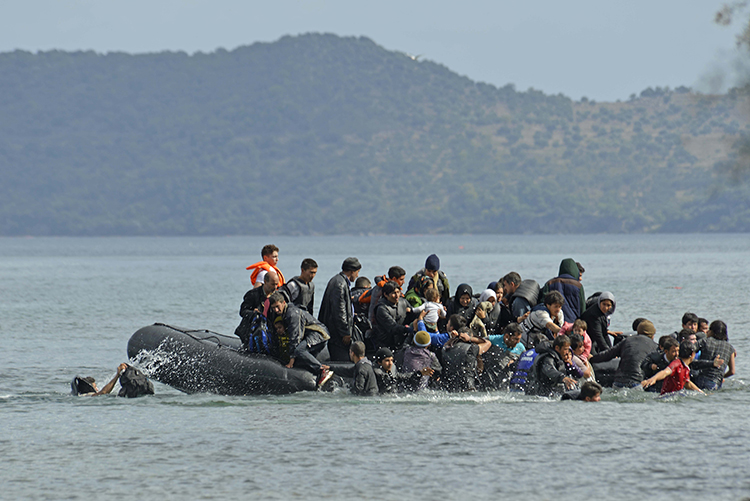 The creation of a new Focus Group of Prosecutors and Investigative Judges Fighting Migrant Smuggling
The creation of a new Focus Group of Prosecutors and Investigative Judges Fighting Migrant Smuggling
To further strengthen the fight against migrant smuggling, Eurojust launched a Focus Group of Prosecutors and Investigative Judges Fighting Migrant Smuggling in April 2020. It is composed of prosecutors and investigative judges from EU Member States specialised in migrant smuggling cases and brings together all concerned actors in the security and criminal justice chain. Europol’s European Migrant Smuggling Centre (EMSC) also joined this new initiative.
The focus group serves as an important hub to regularly connect the key judicial actors at national level in the EU Member States who are responsible for tackling migrant smuggling crimes, to support their joint operational response. One of the fundamental aims is to establish a reinforced relation among practitioners in the field of smuggling migrants and to enhance the sharing of their expertise, with the support of Eurojust.
Key activities include:
- sharing best practice from landmark migrant smuggling investigations;
- analysing trends and new developments in the operating tactics by organised crime groups (OCGs) active in migrant smuggling;
- studying the impact of shifts in migrant smuggling routes;
- gathering input from judicial practitioners on current specific challenges and discussing the opportunities of judicial cooperation in fighting this specific type of cross-border crime.
At the first annual meeting, which took place online in November 2020, the focus group inter alia discussed new smuggling trends, practitioners’ experience and the Eurojust Casework report on sham marriages.
'Smuggling migrants is not only a crime against international conventions and the interest of the States to control and protect their borders but also a crime against human dignity because smugglers exploit vulnerable individuals and their expectations for a better life. With the focus group, we wish to bring together all actors in the security and criminal justice chain across the European Union to advance the Union's response against these hideous crimes.'
Filippo Spiezia, National Member of Eurojust for Italy and Chairman of Eurojust's Anti-Trafficking Team
Analysis of sham marriages as a driver of migrant smuggling
Since 2012, the European Union has firmly stressed the importance of effective cooperation in tackling marriages of convenience as a key means of facilitating irregular migration. In a casework report published in November 2020, Eurojust presented a new overview of cross-border investigations tackling sham marriages since 2012. It explains how human trafficking and migrant smuggling networks lure mainly women into exploitation and even physical abuse via marriages of convenience. The victims are attracted by what seems to be ‘easy money’ but instead become trapped in a web of exploitation and abuse.
It also demonstrates how OCGs exploit differences in national legislation by ‘shopping around’ and concluding marriages in the jurisdictions that apply the lowest penalties or do not criminalise these acts. Based on the findings, Eurojust recommended a broad common approach, involving administrations such as civil registries and consulates, as instrumental to tackle this form of fraud and abuse. In addition, the further enhancement of judicial cooperation and the coordination of investigations at EU level in particular through JITs would provide extra impetus to thwart those arranging marriages of this kind.
